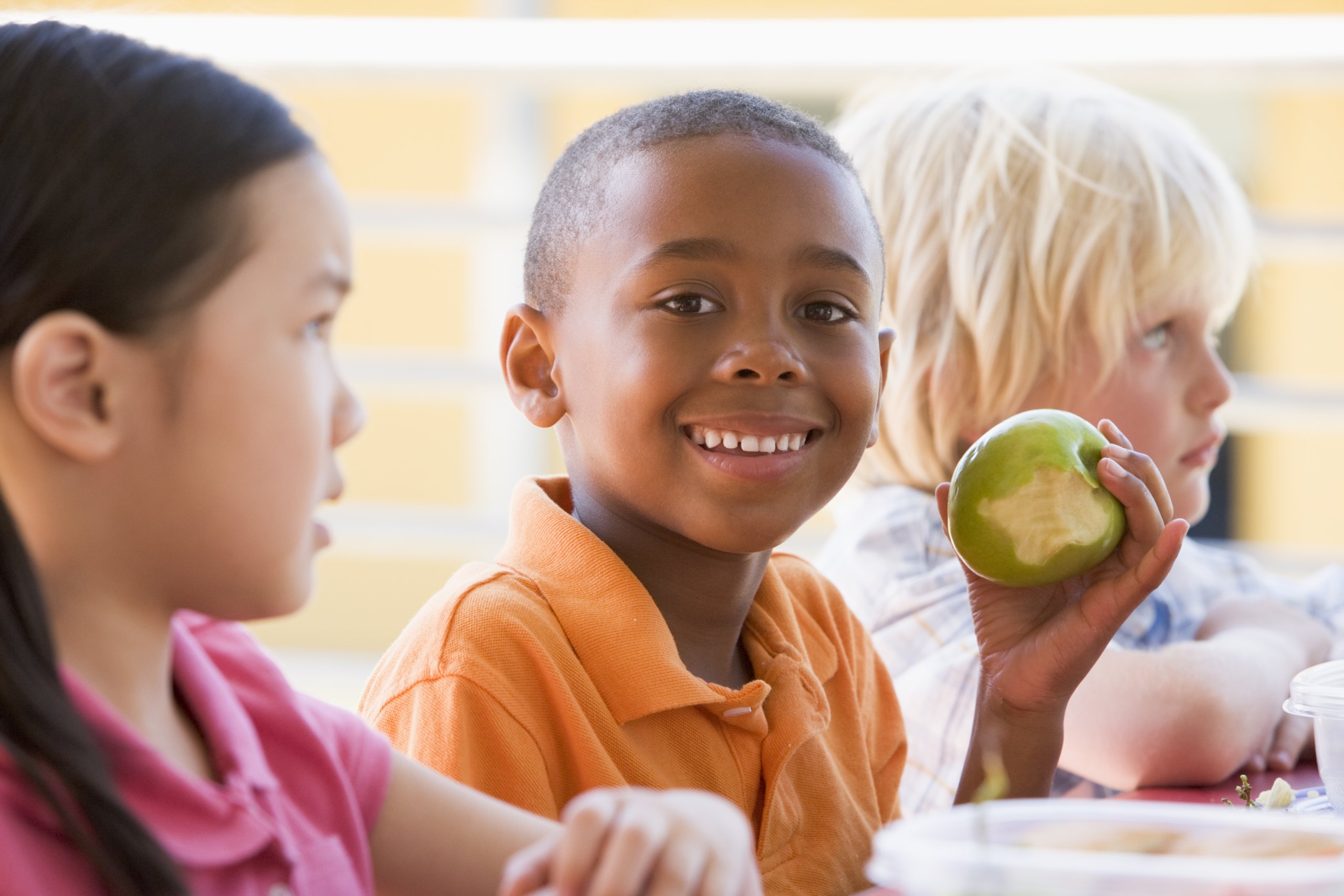School lunch revolutionaries: The couple behind Real Food for Real Kids are on a mission to change the way children eat
BY ANNE KINGSTON
“So this is kids’ food?” asks David Farnell, presenting a plate of basa fish topped with shredded carrots emulsified in flax oil beside tofu squares nestled in cumin-spiced vegetables. “Of course it is,” he jokes. “It’s orange.”
Training tender young palates to reject the artificially coloured processed dreck also known as “kids’ food” is both a mission and a business for Farnell. he and his wife, Lulu Cohen-Farnell, operate Toronto’s Real Food for Real Kids (RFRK), which makes and delivers all-natural food to select schools. In four years, RFRK has become a brand name on the greater Toronto daycare circuit, serving hot lunches and two snacks daily to 4,500 children in 85 facilities. That this food is superior to much “adult” fare and costs $4.50 per child per day reflects their innovative smarts and underlying philosophy: “Every child has a right to healthy food,” says Lulu.
The duo, who also operate a non-profit nutritional education program, have emerged as the Jamie Oliver and Alice Waters of Canada-zealous, nationally respected advocates of healthy childhood eating. This mission began accidentally, after they stared into the nutritional abyss looking for a daycare for their son, Max, now six. Farnell, a sommelier who designed wine region tours, and his Parisian-born wife, then working at a design firm, were appalled by the cheap, processed fare being served.
The archaic Ontario Day Nurseries Act, which legislates daycare food, is concerned only with quantity, not quality: a canned peach in heavy syrup is equivalent to a fresh peach; a nitrate-filled, mystery meat hot dog the same as one made from organic grass-fed beef. And every child receives 250 ml of milk per day, whether they drink it or not. “Dairy farmers run the biggest, strongest lobby around,” says Farnell.
To fill the gap, Lulu began a snack program at her son’s YMCA daycare. Today RFRK employs 25 and counts the Y among its clients. At its west-end headquarters eco-ingenuity rules. Whenever possible, food is prepared from scratch, using organic, locally sourced ingredients. Innovation is spurred by the ever-increasing raft of childhood allergies: a current R&D project is a gluten-free bread that doesn’t taste like a brick.
Farnell speaks of educating developing palates with Jesuitical zeal: “if we can turn a kid on at age three, four, five, to appreciate legumes or fresh vegetable curry with interesting spices it will be with him or her for life,” he says. “Early on kids establish an emotional connection to McDonald’s; we’re trying to make that connection based on quinoa and Brussels sprouts.”
With a clientele that can balk at unbreaded fish and parents who request more “Canadian food,” it’s an uphill battle. Yet the couple is undaunted, having witnessed the effects of a processed diet up close when providing lunch at George Syme Community School during its kitchen renovation. In one room 100 children at RFRK fare. “It was beautiful, this quiet room of children enjoying their food in harmony,” Lulu recalls. In the next, kids dined on processed food with artificial colour and preservatives. “The noise level was unbelievable,” says David. “The sugar spike whacked them out. It was chaos.”
Collective dining is key to socialization and later food-eating habits, they believe, thinking that inspired their Real Eco Lunch Club, which serves 50 or more students at a time. Food is served family-style for $5 per day; participants are given a plate in a zip-lock bag that’s taken home to be washed. French schools, among them Lycee Francais, have been the most responsive. Many schools miss the point, and request individually-wrapped lunches, which they won’t do, says Farnell. “we don’t want 10 kids eating 10 different things. That’s the point. If 10 kids get Brussels sprouts, 10 kids will eat Brussels sprouts.”
Currently the couple is consulting with the Ontario government on its “healthy Schools Initiative,” the in-school lunch program announced this week, with TV chef David Rocco as its front man. Activists like Debbie Field, executive director of Toronto’s FoodShare, speak glowingly of RFRK. “They are raising the bar,” she says. Longer term, however, she believes schools should run their own home-cooking programs. The political battle over school lunch is heating up. But on its true front lines, in RFRK’s kitchen, they’re above the fray, too busy emulsifying carrots in flax oil and plotting new ways to bring quinoa to the half-pint masses.
MACLEAN’S SEPT. 22 ’08
